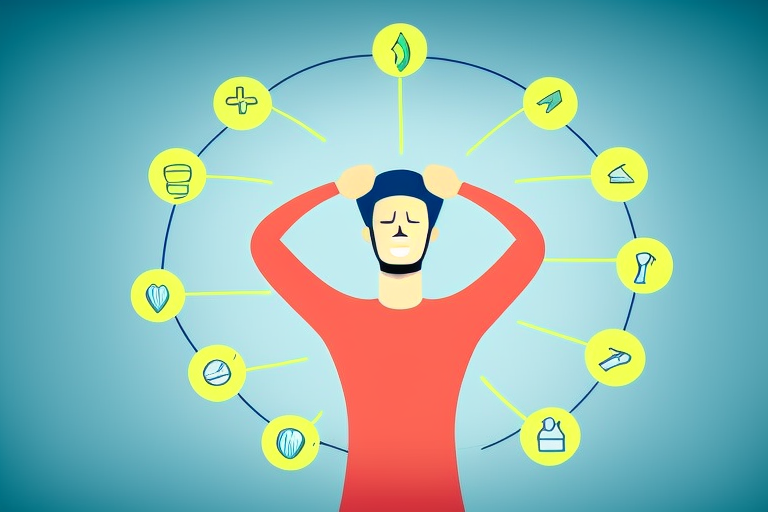
Stress is a natural part of life, but managing it effectively is crucial for maintaining optimal mental and physical health. By learning and implementing proven stress management techniques, you can reduce its negative impact on your well-being. This article will explore various techniques that work, helping you master stress management.
Understanding Stress
Stress is the body’s natural response to perceived threats or challenges. It triggers a “fight or flight” response, releasing hormones like adrenaline and cortisol, which prepare the body for action. While short-term stress can be beneficial, chronic stress can lead to various health issues, such as anxiety, depression, and cardiovascular diseases.
The Importance of Stress Management
Effective stress management is vital for maintaining overall well-being. By learning to manage stress, you can improve your mental and emotional health, boost your immune system, and reduce the risk of developing chronic illnesses.
Proven Techniques for Stress Management
Deep Breathing Exercises
Deep breathing exercises, such as diaphragmatic breathing or the 4-7-8 technique, can help lower stress levels by activating the body’s relaxation response. Practice deep breathing for a few minutes each day or during stressful situations to feel calmer and more in control.
Progressive Muscle Relaxation
Progressive muscle relaxation involves tensing and relaxing various muscle groups throughout the body. This technique helps relieve tension, reduces anxiety, and promotes relaxation. Practice progressive muscle relaxation regularly to keep stress at bay.
Meditation
Meditation is a practice that encourages mental focus and relaxation. Techniques like mindfulness meditation, transcendental meditation, or loving-kindness meditation can help reduce stress levels and promote a sense of calm and well-being.
Mindfulness
Mindfulness involves staying present and fully engaged in the current moment without judgment. Practicing mindfulness through activities like mindful eating, walking, or journaling can help manage stress by reducing negative thoughts and fostering self-awareness.
Exercise
Physical activity is a natural stress reliever, as it releases endorphins, which are natural mood elevators. Engage in regular exercise, such as walking, jogging, swimming, or yoga, to reduce stress and improve overall well-being.
Time Management
Effective time management can help reduce stress by helping you prioritize tasks and manage workload more efficiently. Utilize strategies like setting goals, breaking tasks into smaller steps, and delegating when necessary to minimize stress.
Social Support
Connecting with friends, family, or support groups can help alleviate stress by providing emotional support and opportunities for sharing experiences. Make time for social activities and maintain a support network to better manage stress.
Healthy Lifestyle Choices
Making healthy lifestyle choices, such as eating a balanced diet, getting adequate sleep, and avoiding
excessive caffeine or alcohol consumption, can help you manage stress more effectively. A well-balanced lifestyle supports overall well-being and increases your resilience to stress.
Cognitive Restructuring
Cognitive restructuring involves identifying and replacing negative thought patterns with more positive, rational ones. This technique can help you manage stress by changing your perspective and promoting a healthier mindset. Practice cognitive restructuring by challenging negative thoughts and replacing them with more balanced, positive alternatives.
Tailoring Techniques to Your Needs
Different stress management techniques work for different individuals. Experiment with various methods and find the ones that resonate with you the most. Create a personalized stress management plan that incorporates the techniques that work best for you, and be open to adjusting your plan as needed.
Conclusion
Mastering stress management is an ongoing process that requires commitment and practice. By incorporating proven techniques that work, you can reduce the negative impact of stress on your mental and physical health. Remember, the key to effective stress management is finding the methods that work best for you and incorporating them into your daily life.
FAQs
- How can I identify my stress triggers? Keep a stress journal to track situations, thoughts, or emotions that cause stress. Identifying your triggers can help you develop effective strategies for managing stress.
- How long should I practice stress management techniques for them to be effective? Consistency is crucial for effective stress management. Aim to practice your chosen techniques daily or as needed during stressful situations.
- Can stress management techniques cure anxiety or depression? While stress management techniques can help alleviate symptoms of anxiety and depression, they should not replace professional help. Consult a mental health professional for a comprehensive treatment plan.
- How can I support a loved one experiencing stress? Offer a listening ear, provide emotional support, and encourage them to seek professional help if needed. You can also suggest stress management techniques that may be helpful for them.
- Is it possible to eliminate stress completely? It’s unrealistic to eliminate stress completely, as stress is a natural part of life. The goal of stress management is to reduce the negative impact of stress and enhance overall well-being.

